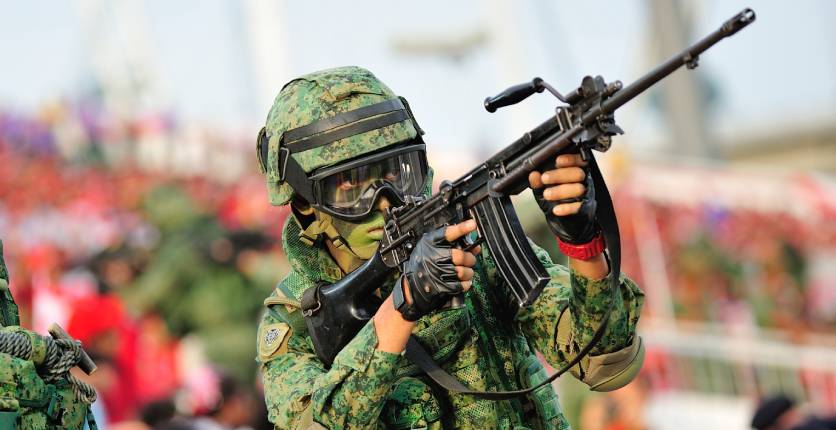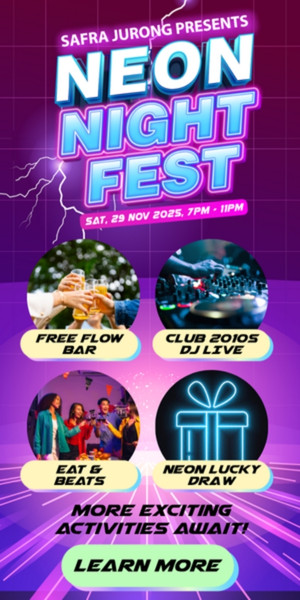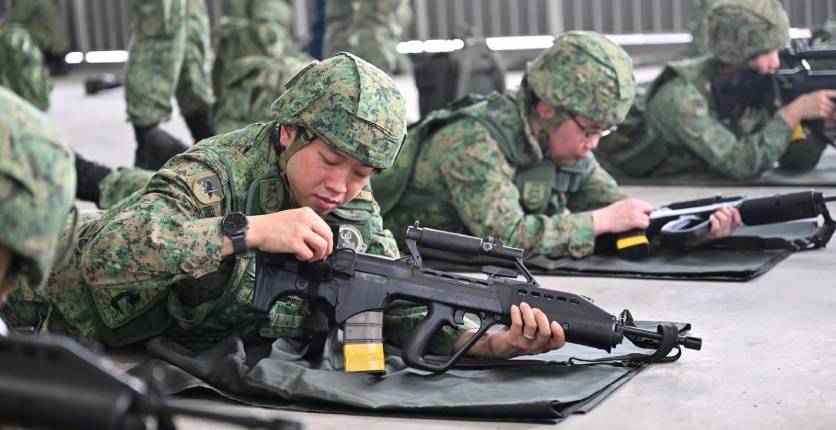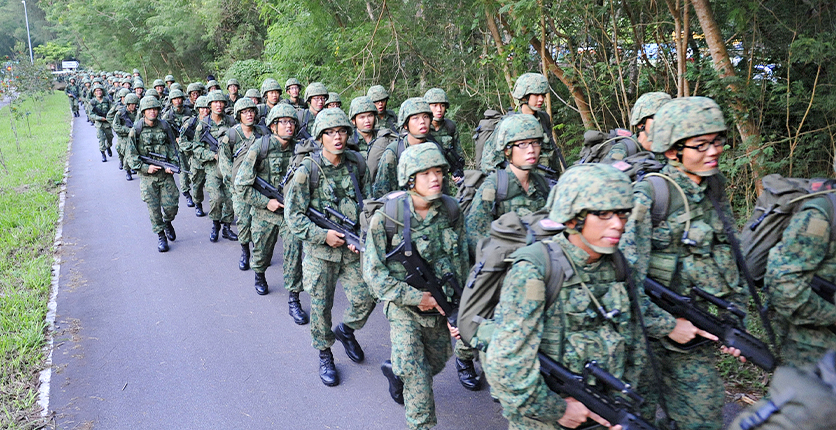When people think of NSmen, they picture push-ups, foot drills, muddy boots, and the eternal struggle of waking up before dawn. But while fitness and discipline are front and centre, there’s one unsung hero in every serviceman’s toolkit that doesn’t get nearly enough credit: good eyesight.
Yup, whether you’re a rifle-toting infantry trooper, a sharp-eyed signal specialist, or a caffeine-fueled clerk trying to read your encik’s handwriting, having good vision is more important than you think. According to the American Academy of Ophthalmology (AAO), 20/20 vision often referred to as normal vision, means you can see an eye chart clearly at 20 feet without glasses or contact lens. Here’s why clear eyes and sharp sight are just as vital as your next IPPT pass.
1. Hitting the Target (And Not the One Two Bays Down)
When you’re on the live firing range, your eyes are your best friend. 20/20 vision helps you line up your sights, steady your aim, and make sure that you’re actually firing at your target – not the one next to it, or worse, the poor dummy target that wasn’t meant to be touched.
With sharp vision, you can judge distance, windage, and alignment more accurately, making those marksman badges less of a dream and more of a possibility. Plus, you’ll earn some serious bragging rights back at camp (or at least avoid the dreaded “re-shoot”).
2. Navigating Like a Field Ninja
Ever been lost in the middle of an outfield exercise, unsure whether you’re heading to the RV point or someone else’s campfire? It’s not just the compass and map you need – it’s your eyes.
Good vision helps you read maps under dim light, recognise landmarks, and spot route markers hidden among trees and shrubbery. Without it, you might end up circling the same tree three times like you’re stuck in a nature-themed escape room.
It also keeps you from following the wrong platoon, mistaking them for your own. Trust us – it’s awkward when you burst into a camouflaged group shouting your section’s name, only to be met with confused stares and the words, “Eh bro, wrong unit.”
3. Safety: For You and the Guy Next to You
NS isn’t all push-ups and parades – there are real safety risks involved. Whether you’re setting up field gear, handling equipment, or traversing tricky terrain, being able to clearly see your surroundings is critical.
20/20 vision helps you avoid tripping over cables, stepping on hazardous objects, or mistaking that live wire for “just a vine”. It also means you can pick up on hand signals, visual cues, or body language from your section mates during missions.
In short: clear eyes = clear path = fewer injuries = fewer extra duties. Simple math.
4. Combat-Ready Without the Fog
Anyone who’s worn glasses during a route march knows the pain: lenses fog up, sweat drips, and suddenly you’re half-blind in the middle of it. Not ideal.
Glasses and contact lens may also help you achieve 20/20 vision. However, NSmen with 20/20 vision who’ve undergone LASIK – get the luxury of not constantly adjusting their specs during push-ups or worrying about losing a contact lens in the dirt. It’s one less thing to stress about when you’re already running on four hours of sleep and a lukewarm packet of kopi-o.
Plus, let’s be real: it just feels cooler not having to worry about eyewear mid-action. Tactical shades optional.
5. Spotting the Encik Before He Spots You
This one’s for the seasoned NSmen: the unspoken skill of avoiding unnecessary attention. Whether it’s that eagle-eyed RSM doing spot checks, or your OC scanning the crowd for a volunteer (aka victim), good eyesight can help you detect and dodge with precision.
See him from afar? Time to “look busy” or strategically position yourself behind someone taller. Miss that visual cue? Well, enjoy your surprise participation in the next logistics run.
Having 20/20 vision isn’t just about safety – it’s a survival skill in the social politics of NS.
6. Vision Beyond the Field: Everyday Life
Outside of field camp and route marches, NSmen need to maintain their vision for everyday tasks – admin work, screen-based operations, and even keeping an eye on family when juggling reservist duties.
Whether you’re filing a report or supervising your kid’s homework while still in uniform, clear sight helps you stay sharp and present both in service and at home. It’s about being effective, alert, and not mistaking your 5-year-old’s toy blaster for your section-issued SAR 21.
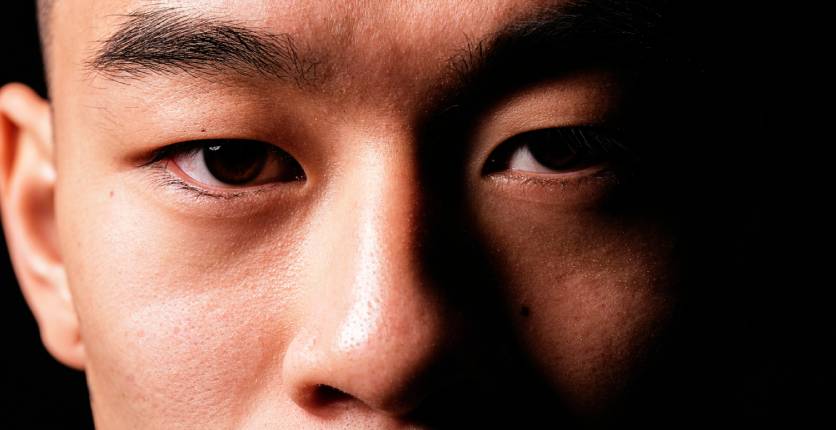
See Your Best, Serve Your Best
No matter if you’re out in the field, on the parade square, or deep into a long ops briefing, one thing’s for sure – clear vision can make all the difference. From spotting distant signals to reading maps and handling delicate equipment, good eyesight isn’t just a “nice-to-have” for NSmen – it’s mission-critical.
Doctors at the Singapore National Eye Centre (SNEC) agree: maintaining optimal eye health helps you perform better, react faster, and stay safer during training or active duty. But here’s the catch – many NSmen deal with common issues like myopia, astigmatism, or even presbyopia (yep, that’s when reading glasses start creeping in after 40). Left unchecked, these can affect how you train, work, and serve.
High-Tech Solutions for Sharper Vision
If you’ve ever thought about ditching your glasses or contacts, you’ll be glad to know that eye treatments have come a long way. SNEC now offers advanced procedures like minimally invasive keratorefractive lenticule extraction (KLEX) – a mouthful to say, but a game changer for people with refractive errors. Recovery? Just a few days before you’re back to most normal activities.
Thinking about LASIK or SMILEpro? You’ll need to be at least 21, have stable vision, and healthy eyes – but only a certified ophthalmologist can confirm if you’re a good fit for the surgery. Depending on your procedure and training demands, you could be back in action within 1 to 4 weeks.
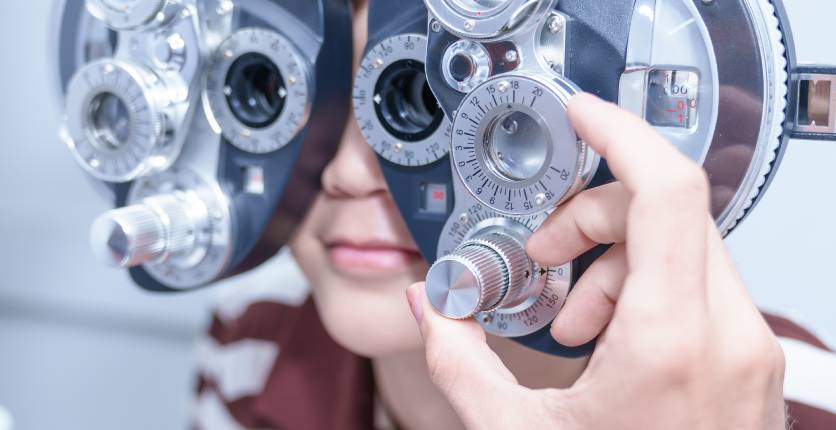
Why Prevention Beats Cure (Every Time)
Even if your eyes seem fine, it pays to get them checked regularly. 20/20 vision may not mean perfect vision. Colour vision, depth perception and peripheral vision are a few of the other tests that need to be done to ensure your eye are healthy. The American Academy of Ophthalmology recommends a baseline eye exam at 40 if you’ve got no risk factors. After that, go every 2 to 4 years if you’re between 40 and 54, every 1 to 3 years from 55 to 64, and every 1 to 2 years after 65.
Why so often? Because some serious eye conditions – like diabetic retinopathy, cataracts, and glaucoma – can sneak up without symptoms until it’s too late. Regular check-ups mean you can catch problems early, long before they start affecting your vision or your duties.
Fighting Digital Eye Strain on Duty
With laptops, tablets, and handheld devices becoming standard in training and operations, digital eye strain is a real challenge. The fix? Follow the 20-20-20 rule: every 20 minutes, look at something 20 feet away for 20 seconds. Blink more, use lubricating drops, keep your screen at eye level, and adjust your lighting.
And about those trendy blue-light glasses? According to a 2023 Cochrane review, they probably don’t do much to reduce eye strain or improve sleep compared to regular lenses – so don’t rely on them as a cure-all.
Bottom Line? Look After Your Eyes
From staying alert in the field to reading fine print during briefings, your eyes are one of your most important assets in service. With smart daily habits, regular check-ups, and access to advanced treatments, you can make sure your vision stays sharp and your performance stays top-notch.
Because when you see your best, you serve your best.
Final Thoughts: Clear Eyes, Full Field Pack, Can’t Lose
In NS, every sense matters – but sight ranks right up there with endurance and mental grit. It keeps you safe, helps you perform, and lets you appreciate the small victories (like spotting the canteen queue is finally short).
So get those eye checks in, consider vision correction if you need it, and give your peepers the respect they deserve. Because in NS, 20/20 vision doesn’t just help you see clearly – it helps you serve smarter.
And if you ever do lose your glasses mid-mission… well, just pray your buddy’s got better vision than you.
Singapore National Eye Centre offers LASIK and SMILEpro procedures for NSmen and SAFRA members – quote “SAFRA” when booking. Click here for more information.
SAFRA does not endorse or assume responsibility for any medical procedures, treatments, or outcomes. Please consult a qualified healthcare or medical professional before proceeding.


